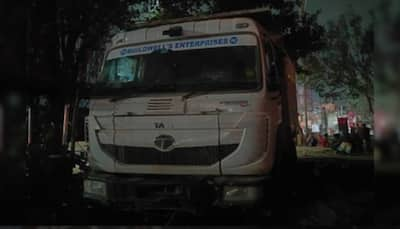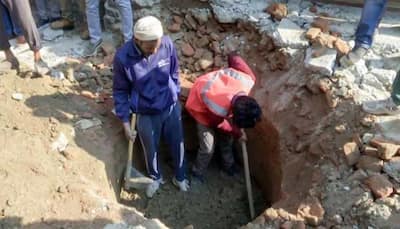A four-member team from the Archaeological Survey of India (ASI) recently conducted a survey of a newly uncovered temple, five ‘teerths,’ and 19 wells in Sambhal, Uttar Pradesh. The inspection was part of an ongoing effort to assess the archaeological significance of these findings.
According to the district magistrate, Dr. Rajender Pensiya, the survey took approximately 8 to 10 hours, covering a total of 24 areas.
The ASI team focused on several key locations, including the recently discovered Shri Kartik Mahadev Temple (also known as the Bhasma Shankar Temple), along with the five ‘teerths’ and 19 wells in the region.
District Magistrate Dr. Pensiya shared that the ASI will submit a detailed report on their findings, which is expected to provide further insights into the historical and cultural importance of these sites.
In response to the discovery, the Sambhal district administration has requested the ASI to conduct carbon dating on both the newly found temple and the wells. This will help determine the age and historical context of these structures, shedding light on their significance to the region’s heritage.
One of the most notable aspects of this archaeological survey is the reopening of the Shri Kartik Mahadev Temple. The temple, which had been closed since 1978 following communal riots in the area, was reopened for prayers on December 13.
The riots, which led to the displacement of Hindu families, had caused the temple to remain inaccessible for decades. The reopening of the temple has generated significant attention, especially since it was discovered during an anti-encroachment drive near the Shahi Jama Masjid.
The discovery of the temple comes amid heightened tensions in the area, particularly after clashes erupted between police forces and local residents over a court-ordered survey of the Shahi Jama Masjid.
On November 24, violence broke out, resulting in the deaths of five people and injuries to 20 police officers. Since then, the area has seen an increased police presence to maintain order.
The ongoing situation has also been influenced by recent legal developments. In November, the Supreme Court of India issued a directive ordering civil courts to cease taking up fresh suits that challenge the ownership or title of religious places or mandate surveys under the Places of Worship Act of 1991.
Stay informed on all the , real-time updates, and follow all the important headlines in and on Zee News.






